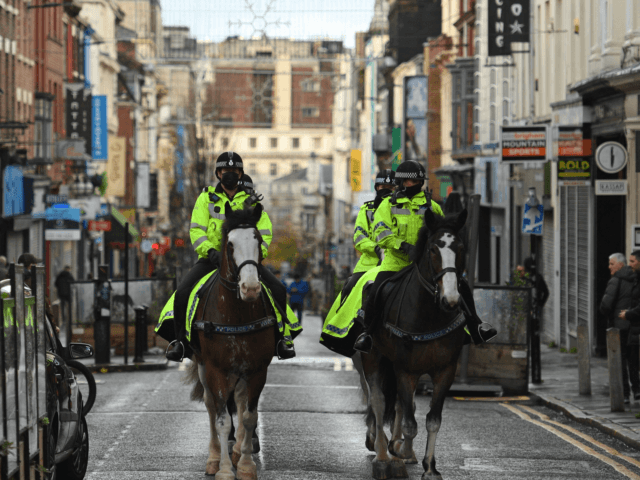Police officers should use “discretion” when deciding to prosecute people for shoplifting in Britain due to the cost of living crisis, the recently installed head of a police watchdog has argued.
Andy Cooke, who was installed by the Conservative government last month as Her Majesty’s chief inspector, has warned that there will be an increase in crime due to rampant inflation and other economic woes in Britain.
In response to the likely uptick in poverty and therefore criminality, the police watchdog told the left-wing Guardian newspaper that police officers should be lenient on those stealing from shops.
“There’s always individual cases where you can use your discretion that doesn’t necessarily result in a prosecution but is dealt with in the best way possible. And the shoplifting one’s a good example, isn’t it?” Cooke suggested.
“What they’ve got to bear in mind is what is the best thing for the community, and that individual, in the way they deal with those issues. And I certainly fully support police officers using their discretion – and they need to use discretion more often.”
An unnamed chief constable, who was described by The Guardian as having “pockets of poverty” under their jurisdiction, said: “There is a difference between a first-time offender who steals bread, cheese or milk to eat, and someone stealing to feed an addiction.”
Up in Smoke: Sadiq Khan Moves to Decriminalise Weed in London After Visiting California Pot Shophttps://t.co/RKTICrQ25Q
— Breitbart London (@BreitbartLondon) May 12, 2022
While Her Majesty’s chief inspector said that he was not in favour of “giving a carte blanche for people to go out shoplifting,” the statements have drawn backlash from the government which appointed Cooke to his post.
The government’s policing minister, Kit Malthouse described the chief inspector’s views as “old-fashioned” and inadequate to prevent rising crime.
“We first of all believe the law should be blind and police officers should operate without fear or favour in prosecution of the law,” Malthouse said.
When questioned if police should still enforce the law against those stealing food, the policing minister said: “Absolutely right,” adding: “In fact, I wrote to chief constables just a year or so ago saying they should not be ignoring those seemingly small crimes.”
Indeed, the importance of policing small crimes, was widely credited for a reduction in crime in New York City under former Mayor Rudy Giuliani, who implemented a “broken windows” policy, with the idea that enforcing basic laws, such as breaking a window, other, larger crimes will also fall.
The crime wave in San Francisco is causing Target stores in the Bay Area to announce they are cutting hours to reduce losses from shoplifting. https://t.co/hWo8llbUON
— Breitbart News (@BreitbartNews) July 3, 2021
In contrast to the approach taken by Giuliani, Democrat controlled states in America have seen widespread economic damage as a result of decriminalising laws on shoplifting and other offences.
In California, for example, left-wing voters passed Proposition 47 in 2014, which states that stealing items up to $950 in value will not be considered as a felony.
Big retail stores in the city of San Francisco have been particularly hard hit by the loosening of laws on shoplifting, with retail outlet Walgreens closing dozens of stores in the Bay Area due to the rise in theft making the locations unprofitable.
Criticising the lax approach taken by the Democrat leadership of the state, El Dorado County’s district attorney Vern Pierson said in December: “We cannot function as a society where we have told people over and over again that there is no consequence for stealing other people’s property.”
Retail groups estimated loses from smash and grab theft and shoplifting amounted to tens of billions of dollars in losses annually across the United States.
Follow Kurt Zindulka on Twitter here @KurtZindulka

COMMENTS
Please let us know if you're having issues with commenting.